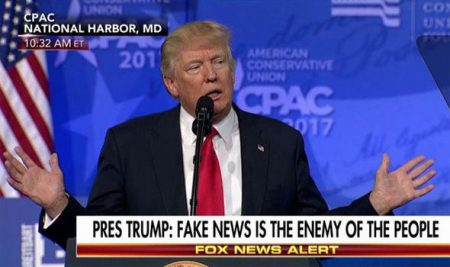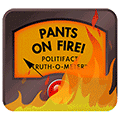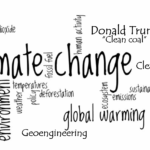
June 10, 2018 – In its latest predictions on artificial intelligence’s (AI) impact over the next five years, Gartner, Inc., a leading U.S. based research, and business advisory company, predicts “by 2022, most people in mature economies will consume more false information than true.” This is number 7 in the 10 predictions Gartner believes will come to pass because of the growing use of AI by business, government, and non-state actors.
Today, it has become simple to exploit AI to alter what is being said in an Internet-posted video. Think about how this could impact a business announcement or political discourse. To describe this as nothing more than mischief-making when first demonstrated was an understatement. This type of manipulation could have dire consequences. Worse yet, AI could end up writing and distributing lies.
If the American election of 2016, and the Brexit campaign, haven’t taught us anything about the dissemination of “fake news,” then we are in for a doozy of a ride over the next few years as AI gets used by bad actors to shape opinion and “knowledge.” And with the current American President declaiming “fake news” each time a reporter asks a question he doesn’t like, it seems that we are stuck with having to discern truth from lies every day. So we don’t need AI muddying up the information news cycle. But we may need it to help us distinguish lies from truth.
It is so easy to lie online today. Discerning opinion from fact is nearly impossible unless you apply due diligence when receiving information of interest to you. For example, when I read the science or technology reports I receive in my inbox each day, I flag those I consider important and then check the source. I then seek additional corroborating sources, a minimum of three, before I consider writing a blog. Even then due diligence can fail with a lie being perpetuated by many sources making it appear to be the truth. Is that where an AI truth-discerning algorithm can help?
At the moment the world isn’t looking at AI solutions to solve the growing “fake news” epidemic. Instead, some governments are considering regulation. One concern is if you shut down lying will you also end a fundamental democratic principle, free speech and along with it freedom of the press?
The European Union (EU) has been looking at ways to combat online lying disseminated as “fake news.” This April it published a strategy paper to address the problem using a variety of strategies and regulations:
- Facebook, Twitter, YouTube, and other social media platforms will be required to agree to a Code of Practice on Disinformation by July 2018.
- The Code provides suggested measures for identifying fake news and contains suggested measures for its spread and prevention online including: increased scrutiny of advertising placement, detection of fake accounts, user tracking to find where information originates from, educating users on AI algorithms used to spread information, and steps social media platforms must take to stop the sale of services to groups spreading or intending to spread fake news.
- Upon implementation, an EU-empowered commission will begin monitoring the efforts of social media platforms to put the code into practice.
- In December 2018, the commission will report on monitoring efforts and then determine if new actions are needed, including enforceable regulations.
- The EU will, in parallel, set up an independent Europe-wide network of fact-checkers to identify fake news and to recommend best practices for social media platforms going forward.
States EU Security Commissioner Julian King, the action is not about “targeting partisan journalism, freedom of speech, freedom to disagree, freedom to be, in some cases, a bit disagreeable.” It is specifically aimed at those who perpetuate online lies or what we call today, “fake news.”
Europe isn’t alone. Malaysia recently passed an anti-fake news law that includes fines of up to $123,000 US for perpetrators. Malaysia’s law governs digital news outlets including audio and video, and social media platforms. India, too, is considering regulations that would give the government the right to take away accreditation from journalists who publish “fake news.”
Members of the media argue that any regulation of news is a slippery slope towards ending freedom of speech. The onus to discern what is true and what is a lie, therefore, in the media’s opinion, lies in the hands of the reader. After all, there have been tabloid “newspapers” around for years telling us that Jennifer Aniston has been pregnant umpteen times. No one has shut these “fake news” sources down.
For those who encounter what could be fake there are a growing number of tools to help separate fact from fiction. You the reader have to make the initial assessment. If something sounds fishy when you read it you can find out if you are being lied to by going to a number of sites including:
- FactCheck.org and Flackcheck.org – are products of University of Pennsylvania’s Annenberg Public Policy Center, with the former providing non-partisan monitoring of U.S. politicians, and the latter seeking out the truth in politics, science, and health.
- Fact Checker (The Washington Post) – keeps a running count of the weekly lies the President of the United States and others in his administration tell.
- Hoax-Slayer.com – covering the latest e-mail, social media hoaxes, and Internet scams.
- NewsGuard – launched in March 2018, the site uses experienced journalists to research 7,500 news sources representing 98% of articles read and shared in the United States. The goal is to expose illegitimate information providers.
- OpenSecrets.org – following the money in American politics.
- Politifact.com – a Pulitzer Prize-winning site that includes a truth-o-meter aimed at discerning whether U.S. politicians are lying or telling the truth.
- Poynter.org – focused on making journalism better by providing teaching the journalists of tomorrow and by providing IFCN, an international fact-checking network to promote best practices separating fiction from fact.
- Snopes.com – the oldest and largest fact-checking site on the Internet covering all the news, not just American stories.
- SunlightFoundation.com – aimed at making government and politics transparent and more accountable.
- TruthorFiction.com – covering a wide range of stories to expose rumors and hoaxes.
This burgeoning new industry is trying to address those who cry “fake news” and those who originate and disseminate it. None of the sites mentioned above claim to be using AI algorithms to spot deception. They remain human intensive in the effort to ferret out liars.









